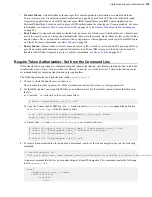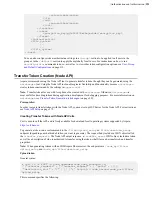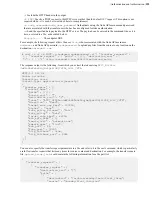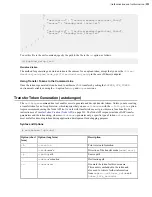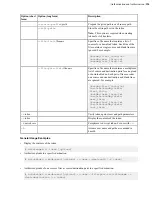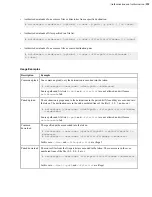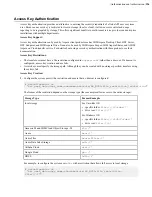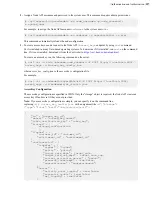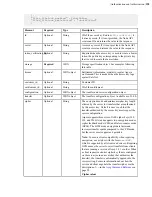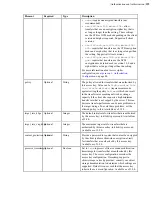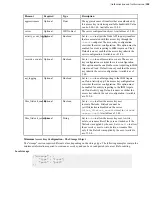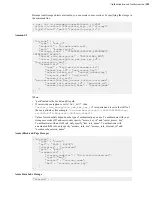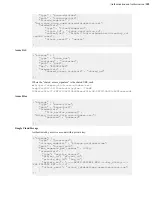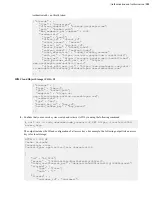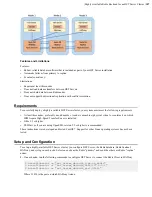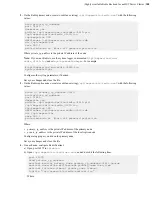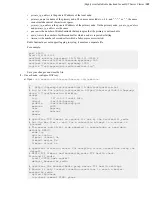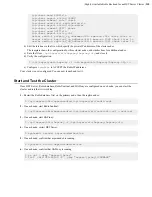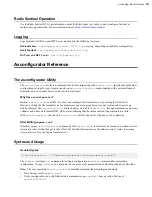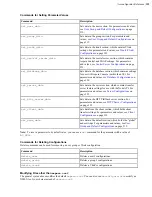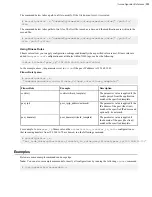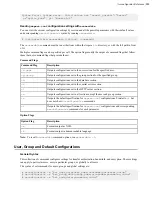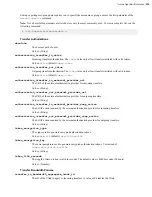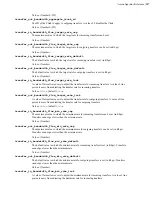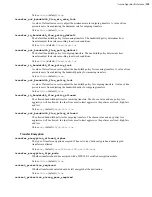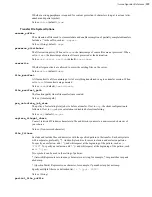
| Authentication and Authorization |
304
"entitlement_id" : "43gsdi459-23r3r-w38ron-23523ro-sr82h3r8h3r"
},
"configuration" : {
"transfer" : {
"cipher" : "aes-128",
"policy" : "fair",
"target_rate_kbps" : 10000,
"target_rate_cap_kbps" : 20000,
"content_protection_secret" : "secretsecret",
"preserve_timestamps" : false,
"aggressiveness" : "0.00",
},
"server" : {
"activity_event_logging" : true,
"recursive_counts" : true,
"aej_logging" : true
}
},
"files_filelock_enabled" : true,
"files_filelock_restriction" : "none"
}
]
5.
Test the access key.
If your access key is configured correctly, the following command returns the files in the path that was specified in
the access key configuration:
# curl -ki -u
access_key_id
:
access_key_secret
https://localhost:9092/
files/1/files
Basic Tokens
An Aspera basic token is created from an access key ID and secret, which authorizes a transfer user access to a
specific area of a storage and authenticates that user to the storage. Basic tokens are less restrictive than transfer
tokens. They can be used to transfer with any Aspera server that supports access keys (all but IBM Aspera on Cloud).
1.
Create an access key for the storage and retrieve its ID and secret, as described in
on
page 296.
2.
Create a basic token by encoding the
access_key_id:secret
in base64.
# echo -n
access_key_id
:
access_key_secret
| base64
For example:
# echo -n diDeuFLcpG9IYdsvxj0SCq4mOohNJTKvp5Q2nRWjDgIA:aspera | base64
The basic token looks similar to the following:
ZGlEZXVGTGNwRzlJWWRzdnhqMFNDcTRtT29oTkpUS3ZwNVEyblJXakRnSUE6YXNwZXJh
If the basic token breaks across lines in the output, rerun the command using the
-w0
option to remove the line
break. For example:
# echo -n
access_key_id
:
access_key_secret
| base64 -w0
3.
Set the basic token as an environment variable by running the following command:
# export ASPERA_SCP_TOKEN="Basic
token_string
"

